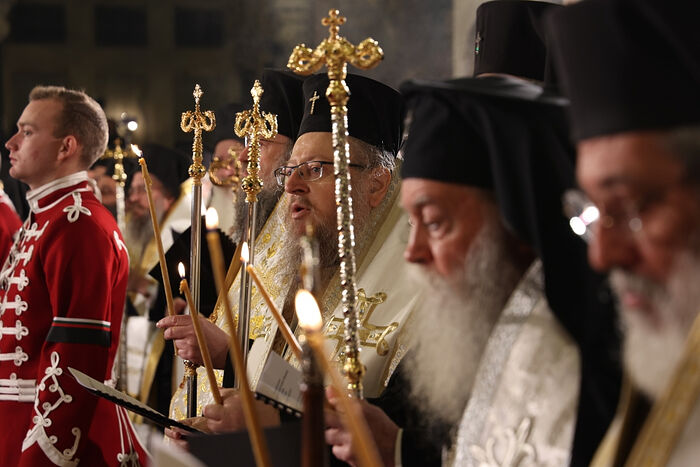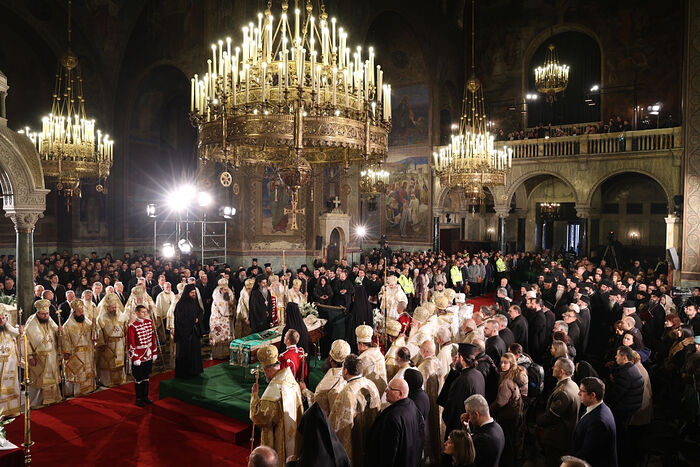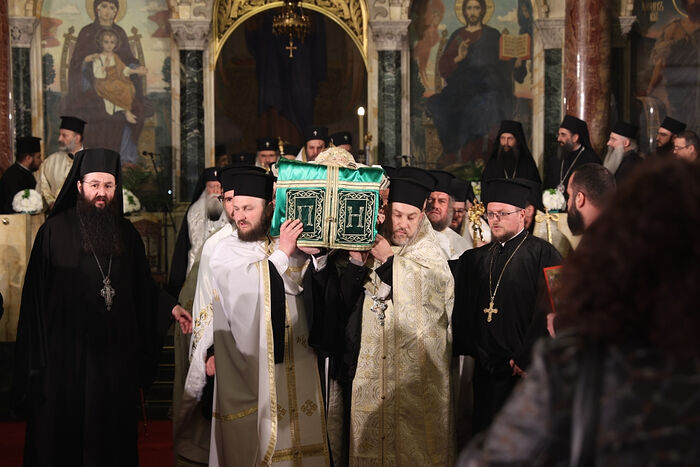In an exclusive interview with EWTN News, Major Archbishop Sviatoslav Shevchuk, head of the Ukrainian Greek Catholic Church, spoke of the continued need for humanitarian aid in his country and discussed Pope Francis’ peace efforts and the recent controversy over same-sex blessings.
The Ukrainian patriarch was in the U.S. for a week of meetings with public officials and Church leaders to foster renewed support for Ukraine. He spoke with EWTN at the Ukrainian Catholic National Shrine of the Holy Family in Washington, D.C.
Shevchuk emphasized his gratitude to the American people for their support but voiced concern that the U.S. could be tiring of helping Ukraine. He pleaded: “Please don’t give up Ukraine.”
War in Ukraine
Though conveying a “message of gratitude” to the American people, Shevchuk voiced his worry that ordinary Ukrainian people are being forgotten as prolonged political debate over support for Ukraine has delayed action.
As the Ukraine-Russia war hits its two-year mark, there are currently 14.6 million Ukrainians in urgent humanitarian need, according to Shevchuk.
“We cannot say, okay, I’ll eat on the next week,” he said, adding that the Ukrainian Catholic Church “is a main actor in this humanitarian action of assistance to the Ukrainian people, and I can testify that aid cannot be delayed.”
Instead of thinking of the war in political terms, Shevchuk urged the American people to think of Ukraine in terms of its “simple, suffering people.”
“Each day, probably 200 Ukrainians are killed and any delay of the capability to receive the help to protect those people is paid with their blood.”
Reflecting on his personal experience of the war, Shevchuk said that though “nobody is safe in Ukraine,” intelligence reports have indicated that he is one of Russia’s top 10 targets for elimination.
“So, it is dangerous. But that is the mission of each bishop in that time to journey with his own flock,” he said. “From the very beginning, I completely entrusted myself, my life, into God’s hand. Lord, let your will be done. If you want me alive, it means that I have to serve your people. I am still alive, which means that I have a mission.”
“Jesus Christ today is crucified in the crucified body of Ukraine. And we venerate him in the wounds of the simple people,” he said.
Pope Francis
Shevchuk said there is a great desire among the people of Ukraine for Pope Francis to visit the country and that they “are praying” for him to come soon.
Despite this, Shevchuk admitted that the Vatican’s neutrality in the wake of the war “was not very well received in Ukraine in the beginning, because how can somebody be neutral when there is an aggressor who is killing us constantly each day?”
He mentioned Ukraine President Volodymyr Zelenskyy’s 2023 visit to the Vatican, saying that because of the president’s belief that his country “doesn’t need a mediator but allies,” it was “not an easy moment in the relationships between the official Kiev and the Vatican.”
Yet, Shevchuk praised the pope for using his neutrality to help gather humanitarian aid and to work toward peace between Russia and Ukraine. He said that when speaking to Ukrainians about the Vatican’s decision to remain neutral he makes the distinction between diplomatic and moral neutrality.
“The Holy Father is not neutral in the moral level. He is with us and he confirmed that many times,” he said.
“This neutrality was given as an instrument of searching to alleviate the suffering of the people, and probably in the future some sort of channels of communication for a possible peace agreement,” he added. “So, in a certain sense, we do have a good ally.”
Same-sex blessings
Shevchuk said the Ukrainian Greek Catholic Church has no plans to implement or further discuss the Vatican document Fiducia Supplicans, which allows “nonliturgical blessings” for homosexual couples.
The Ukrainian Church was the first Eastern church under Rome to declare that the document would not be implemented in its jurisdiction.
Shortly after the document’s release, Shevchuk issued a statement in which he said that because the document “does not address questions of Catholic faith or morality, does not refer to any prescriptions of the Code of Canons for the Eastern Churches, and does not mention Eastern Christians,” it “applies exclusively to the Latin Church and has no legal force for the faithful of the Ukrainian Greek Catholic Church.”
“Each Vatican document has a special process of reception in our Church,” Shevchuk explained to EWTN.
“We have our own way to be open to everybody but also how to deliver church blessings,” he said. “In our tradition, we never can distinguish liturgical and nonliturgical blessings.”
“When I grew up, always the sacred space was not limited with the church building,” he went on. “We were taught that Christians are supposed to bring that liturgy of light outside of the church. So, for us, it is very difficult to distinguish nonliturgical blessings.”
He noted that if approached by someone asking for a blessing, he would give it without asking if the person was in a state of sin or if he had been to confession.
“Of course, if somebody will approach me and ask for the blessing, I’ll give the blessing,” he said. “It’s not a moment to inquire in his personal condition as a Christian. But to distinguish so sharply between liturgical and nonliturgical blessing, for us, it’s quite difficult.”
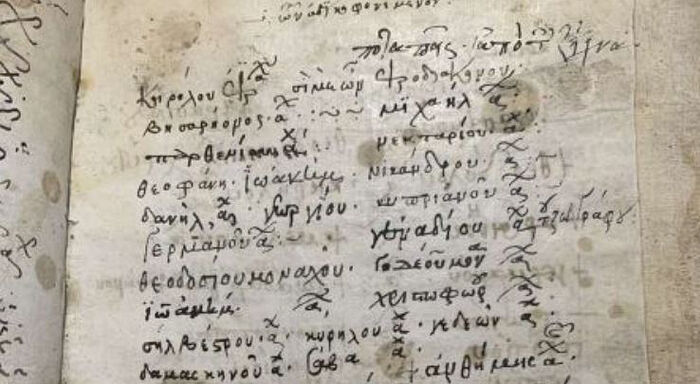 Photo: orthodoxianewsagency.com
Photo: orthodoxianewsagency.com  Lost Manuscripts Stolen from Greek Monastery Found in New YorkThree Greek 16th and 17th-Century manuscripts taken from a monastery by Bulgarian combatants in 1917 during World War I that wound up at a Manhattan gallery – then lost – were found there and will be returned to Greece.
Lost Manuscripts Stolen from Greek Monastery Found in New YorkThree Greek 16th and 17th-Century manuscripts taken from a monastery by Bulgarian combatants in 1917 during World War I that wound up at a Manhattan gallery – then lost – were found there and will be returned to Greece. Manuscripts stolen from Greek monastery 100 years ago returned to rightful homeYesterday, October 17, at the Patriarchate’s representation office in Athens, Metropolitan Theodoritos of Laodicea presented the stolen and recovered manuscripts to Metropolitan Dorotheos of Drama and the Abbess of Panagia Eikosiphoinissa Monastery, Mother Antonini.
Manuscripts stolen from Greek monastery 100 years ago returned to rightful homeYesterday, October 17, at the Patriarchate’s representation office in Athens, Metropolitan Theodoritos of Laodicea presented the stolen and recovered manuscripts to Metropolitan Dorotheos of Drama and the Abbess of Panagia Eikosiphoinissa Monastery, Mother Antonini.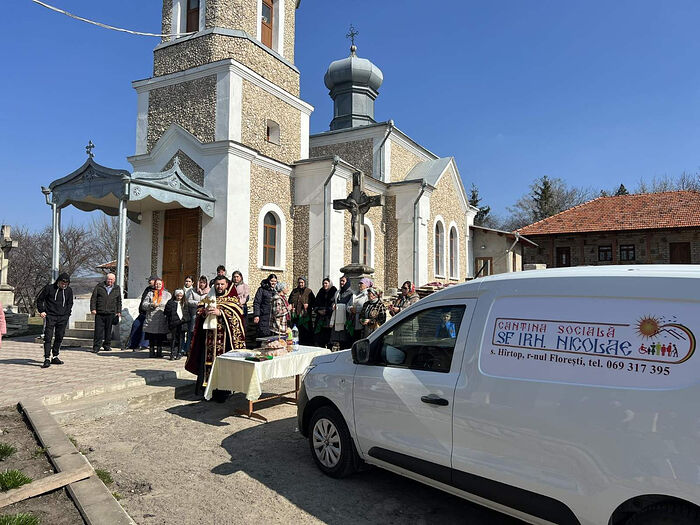
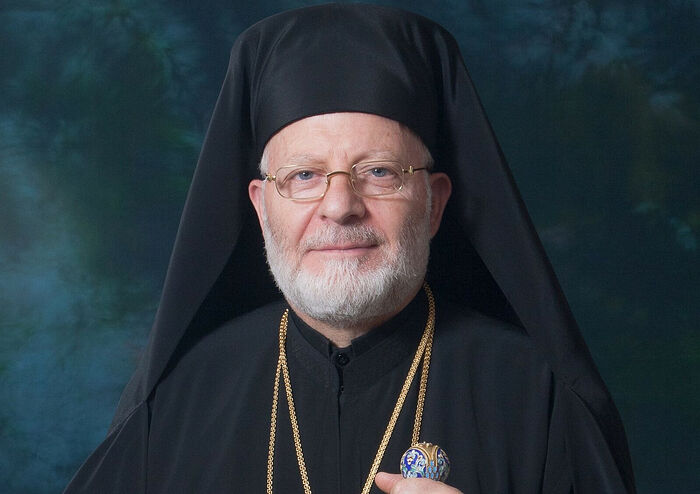
 Antioch investigating “ecclesiastical transgressions” of Met. Joseph, former head of American ArchdioceseThe committee will report to the Holy Synod, which will make the appropriate decision.
Antioch investigating “ecclesiastical transgressions” of Met. Joseph, former head of American ArchdioceseThe committee will report to the Holy Synod, which will make the appropriate decision. New Head of Antiochian Church in America Enthroned; Antiochian Patriarch to Meet with Officials on Issues in SyriaThe second largest Orthodox Christian Church in North America has a new leader, enthroned by the head of one of the oldest churches on earth.
New Head of Antiochian Church in America Enthroned; Antiochian Patriarch to Meet with Officials on Issues in SyriaThe second largest Orthodox Christian Church in North America has a new leader, enthroned by the head of one of the oldest churches on earth. Metropolitan of Antiochian Archdiocese retires amidst moral claimsPatriarch John calls upon the Archdiocese to remain united in prayer.
Metropolitan of Antiochian Archdiocese retires amidst moral claimsPatriarch John calls upon the Archdiocese to remain united in prayer. Former head of Antiochian Archdiocese sues over severance package—alleges promises were brokenAccording to Metropolitan Joseph (Al-Zehlaoui), he has not been given the generous severance package he was promised.
Former head of Antiochian Archdiocese sues over severance package—alleges promises were brokenAccording to Metropolitan Joseph (Al-Zehlaoui), he has not been given the generous severance package he was promised.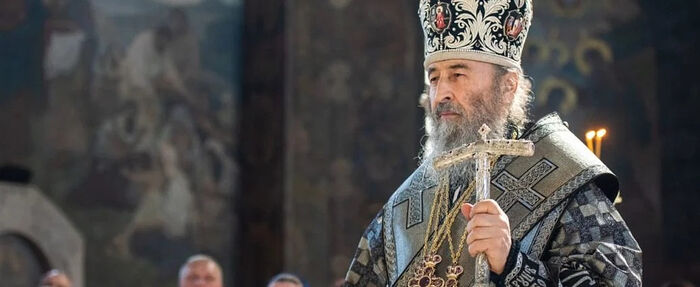
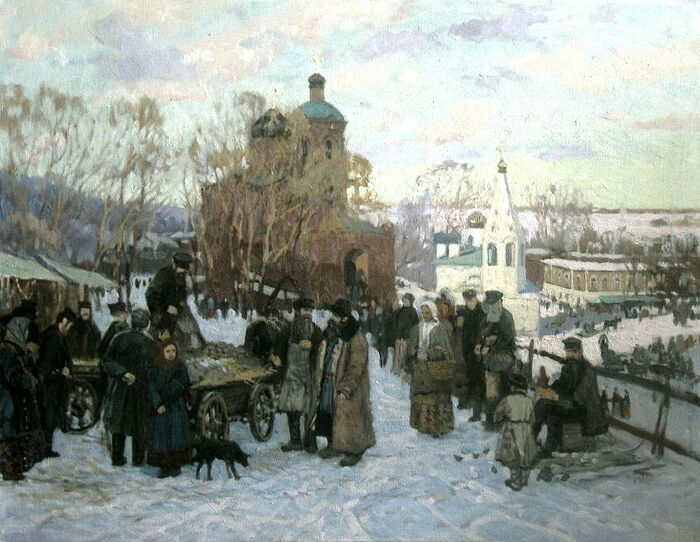
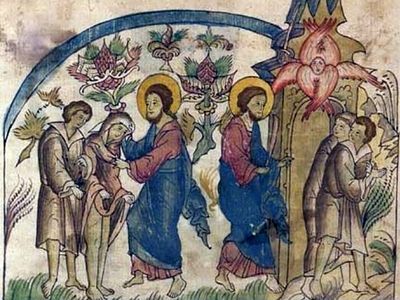 Sermon on the Remembrance of Adam’s Exile from ParadiseThe Lord God bestowed free will upon Adam, as He also has upon you and me. This is a very great but also very responsible gift. As a test of free will, as a confirmation of faithfulness to the Father, in Paradise grew the tree of the knowledge of good and evil. Of course it was also intended for man, but the Lord foretold that the time had not yet come for young Adam to know about good and evil.
Sermon on the Remembrance of Adam’s Exile from ParadiseThe Lord God bestowed free will upon Adam, as He also has upon you and me. This is a very great but also very responsible gift. As a test of free will, as a confirmation of faithfulness to the Father, in Paradise grew the tree of the knowledge of good and evil. Of course it was also intended for man, but the Lord foretold that the time had not yet come for young Adam to know about good and evil. The Sunday of the Prodigal SonThe Sunday of the Prodigal Son
The Sunday of the Prodigal SonThe Sunday of the Prodigal Son Great Lent in Questions and AnswersGreat Lent is a very special time, including in the Church calendar, but not all days of Great Lent are the same.
Great Lent in Questions and AnswersGreat Lent is a very special time, including in the Church calendar, but not all days of Great Lent are the same.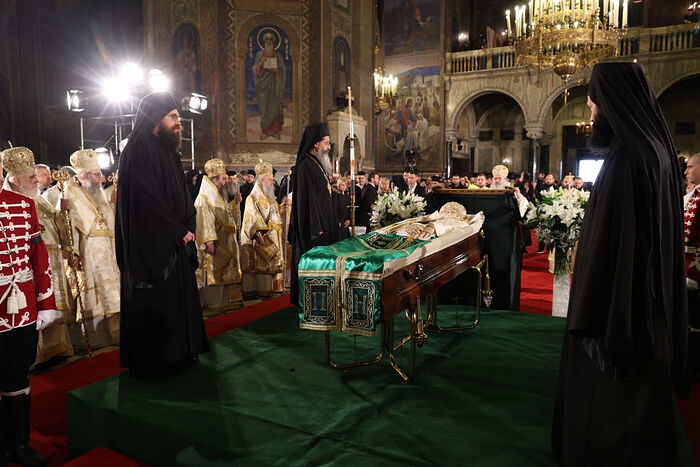
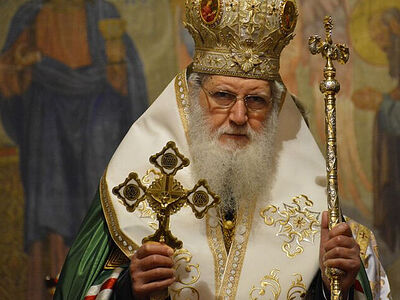 Patriarch Neofit of Bulgaria reposes in the LordThe Patriarch was in poor health in recent years.
Patriarch Neofit of Bulgaria reposes in the LordThe Patriarch was in poor health in recent years.